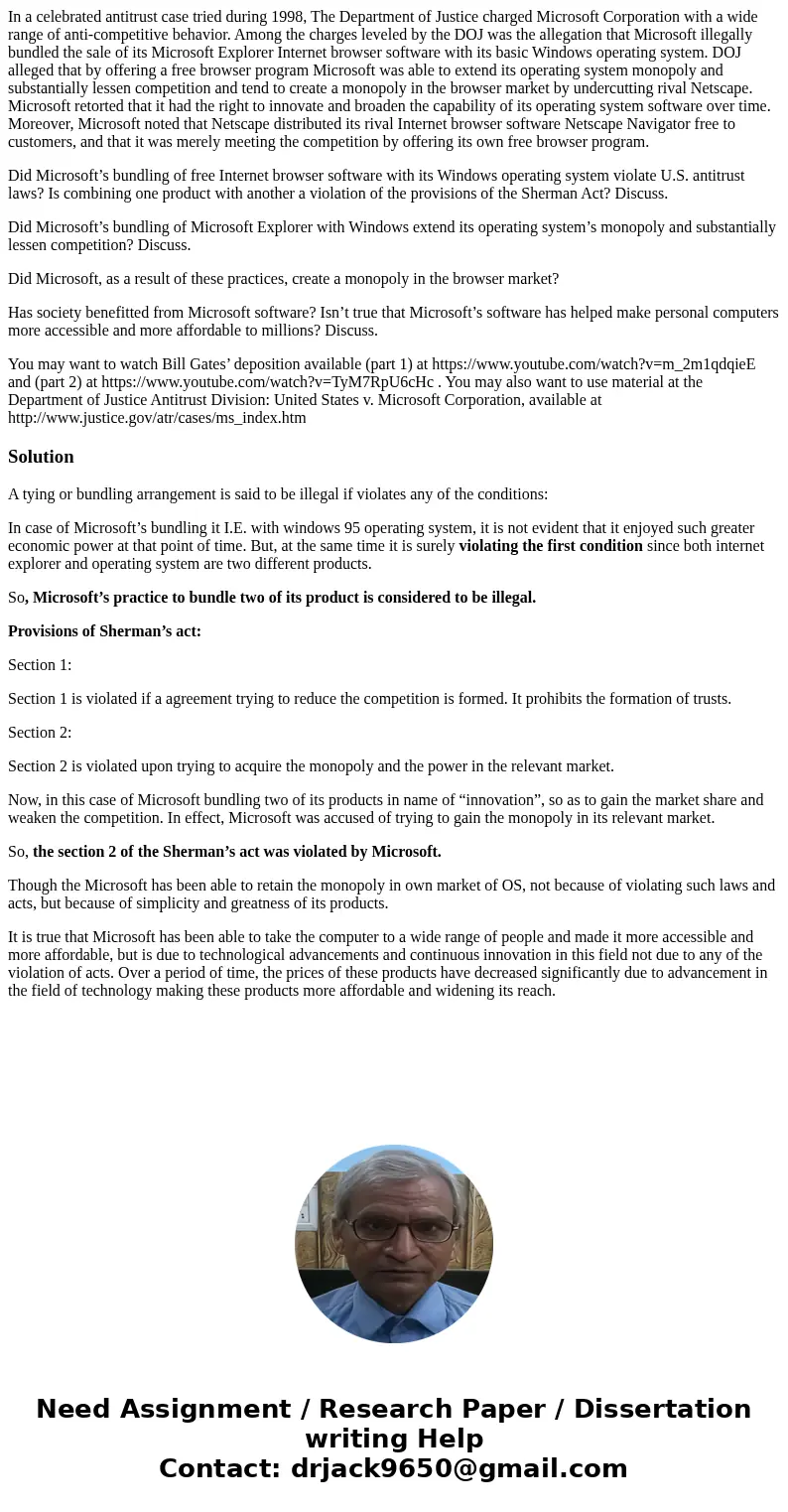In a celebrated antitrust case tried during 1998 The Departm
In a celebrated antitrust case tried during 1998, The Department of Justice charged Microsoft Corporation with a wide range of anti-competitive behavior. Among the charges leveled by the DOJ was the allegation that Microsoft illegally bundled the sale of its Microsoft Explorer Internet browser software with its basic Windows operating system. DOJ alleged that by offering a free browser program Microsoft was able to extend its operating system monopoly and substantially lessen competition and tend to create a monopoly in the browser market by undercutting rival Netscape. Microsoft retorted that it had the right to innovate and broaden the capability of its operating system software over time. Moreover, Microsoft noted that Netscape distributed its rival Internet browser software Netscape Navigator free to customers, and that it was merely meeting the competition by offering its own free browser program.
Did Microsoft’s bundling of free Internet browser software with its Windows operating system violate U.S. antitrust laws? Is combining one product with another a violation of the provisions of the Sherman Act? Discuss.
Did Microsoft’s bundling of Microsoft Explorer with Windows extend its operating system’s monopoly and substantially lessen competition? Discuss.
Did Microsoft, as a result of these practices, create a monopoly in the browser market?
Has society benefitted from Microsoft software? Isn’t true that Microsoft’s software has helped make personal computers more accessible and more affordable to millions? Discuss.
You may want to watch Bill Gates’ deposition available (part 1) at https://www.youtube.com/watch?v=m_2m1qdqieE and (part 2) at https://www.youtube.com/watch?v=TyM7RpU6cHc . You may also want to use material at the Department of Justice Antitrust Division: United States v. Microsoft Corporation, available at http://www.justice.gov/atr/cases/ms_index.htm
Solution
A tying or bundling arrangement is said to be illegal if violates any of the conditions:
In case of Microsoft’s bundling it I.E. with windows 95 operating system, it is not evident that it enjoyed such greater economic power at that point of time. But, at the same time it is surely violating the first condition since both internet explorer and operating system are two different products.
So, Microsoft’s practice to bundle two of its product is considered to be illegal.
Provisions of Sherman’s act:
Section 1:
Section 1 is violated if a agreement trying to reduce the competition is formed. It prohibits the formation of trusts.
Section 2:
Section 2 is violated upon trying to acquire the monopoly and the power in the relevant market.
Now, in this case of Microsoft bundling two of its products in name of “innovation”, so as to gain the market share and weaken the competition. In effect, Microsoft was accused of trying to gain the monopoly in its relevant market.
So, the section 2 of the Sherman’s act was violated by Microsoft.
Though the Microsoft has been able to retain the monopoly in own market of OS, not because of violating such laws and acts, but because of simplicity and greatness of its products.
It is true that Microsoft has been able to take the computer to a wide range of people and made it more accessible and more affordable, but is due to technological advancements and continuous innovation in this field not due to any of the violation of acts. Over a period of time, the prices of these products have decreased significantly due to advancement in the field of technology making these products more affordable and widening its reach.

 Homework Sourse
Homework Sourse